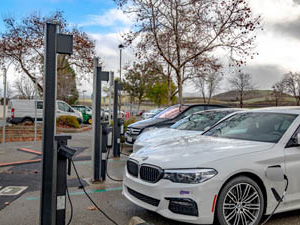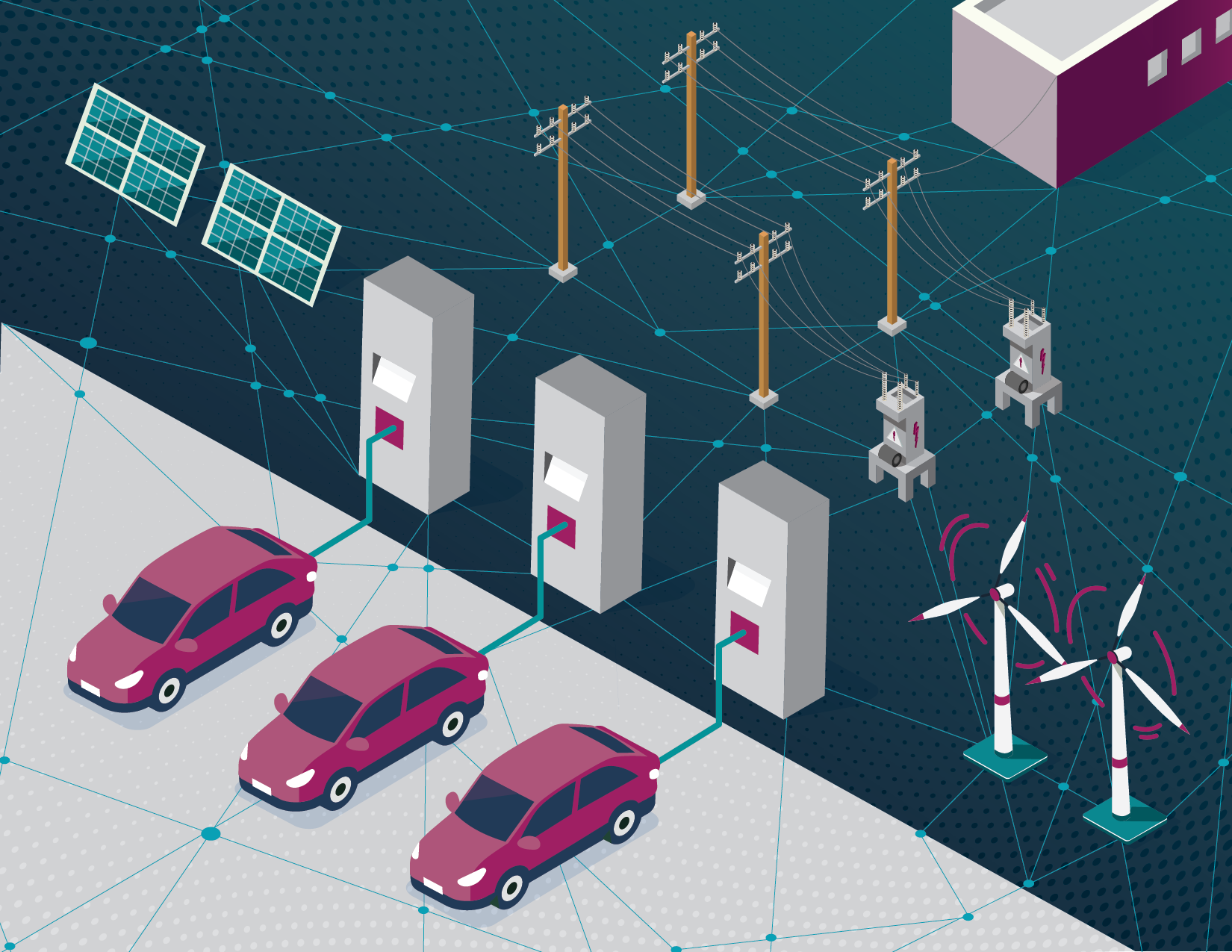With increasing numbers of electric vehicles (EVs) on the road, Sandia researchers are developing cybersecurity threat and grid integration models to accelerate the safe and secure deployment of smart EV charging infrastructure on the nation’s power system.
Understanding the Impact to Electric Grid Operations

Sandia conducts research to understand the impact of electric vehicle (EV) charging infrastructure on the security and reliability of the electric grid.
As EV charging infrastructure expands to meet growing demand, it has the potential to impact many stakeholders who oversee, manage, or rely on secure and reliable power supplies. For example,
- Utility companies may need to adapt their transmission and distribution assets to meet increased demands for power.
- Cities may need to plan for new charging locations and the locations’ power supplies.
- Organizations focused on public health and safety — such as law enforcement or first responders — may need to consider how EV technologies could affect their operations.
- Individual consumers and communities could be affected by changing energy prices and traffic patterns.
Sandia’s EV charging research builds on a wealth of experience that includes power distribution system simulation, distributed energy system optimization, and resilience. Software tools are maintained for energy infrastructure planning.
Learn more about Sandia’s grid integration research and tools.
Securing Electric Vehicle Supply Equipment

As electric vehicles (EVs) become more prominent on our roads and in our communities, the risk for cyber attacks through vehicle charging stations increases. These attacks threaten not only the electric grid and transportation systems, but also personal privacy. Researchers have found these stations are the targets for cyber attack and, in some cases, they lack appropriate security measures. EV charger vulnerabilities have been found in user and payment interfaces, maintenance ports, internet and cloud connections, and EV-to-charger communications.
Sandia — in partnership with Pacific Northwest National Laboratory, Argonne National Laboratory, Idaho National Laboratory, the National Renewable Energy Laboratory, the US Department of Transportation, the National Motor Freight Traffic Association, and others — is working to address the cyber security of electric vehicle supply equipment (EVSE). Together, Sandia and its partners are creating a cyber security threat model (PDF) and performing risk assessments of EVSE.
This effort is designed so that automotive, charging, and utility stakeholders can better protect their customers, vehicles, and power systems in the face of growing cyber threats. The project provides stakeholders with a strong technological basis for securing vehicle charging infrastructure from cyber threats.
Download the handout Electric Vehicle Supply Equipment Cybersecurity Best Practices (PDF)
Publications
Browse related scientific and technical publications from Sandia’s Resilient Energy and Distributed Systems Integration (REDSI) program.
Contact
Summer Ferreira
srferre@sandia.gov
